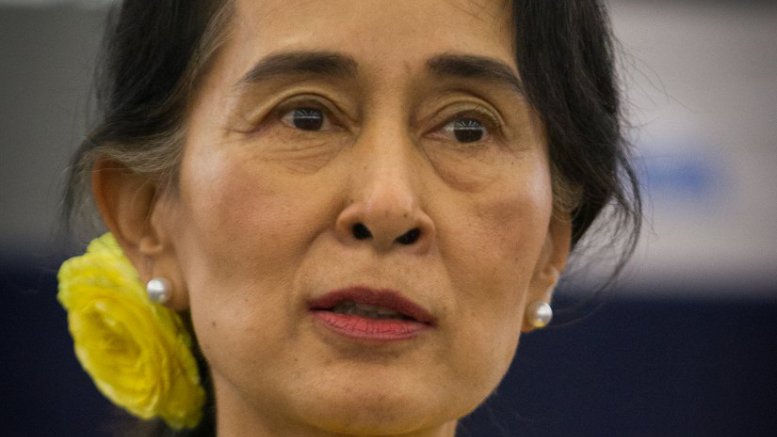State Counsellor of Myanmar Aung Sang Suu Kyi’s recent visit to China from 17-21 August 2016 signalled the importance which Myanmar continues to attach to its ties with Beijing. During the visit Suu Kyi met Chinese President Xi Jinping and Chinese Premier Li Keqiang to promote bilateral relations and friendship. She also met with Zhang Dejiang of Chairman of Standing Committee of the National People’s Congress.
China is important to Myanmar for ensuring peace along its northern border areas where ethnic conflicts continue to simmer. Some of the rebel ethnic groups operating along the China-Myanmar border are said to be backed by China which is a constraining factor in the ties of the two countries. The National League for Democracy (NLD)-led government is keen to harness China’s help in restoring peace in the country by ensuring that such insurgency is tackled. From the joint statement which was released during Suu Kyi’s visit it is evident that both China and Myanmar are keen to extend their friendship and advance their comprehensive strategic cooperative partnership. It was also affirmed that promoting rule of law in the border areas was of particular interest to both countries and it also mentioned China’s keened on helping Myanmar in its process of national reconciliation.
Close on the heels of assured support from China for the national reconciliation process n Myanmar, three ethnic rebel groups- the Kokang group, the Arakan Army and the Ta’ang National Liberation Army, which have connections to China and which had thus far stayed away from the reconciliation process declared their intention to join a peace conference which Suu Kyi will convene later this month. An end to the insurgency along the Myanmar-China border would help China as it had become impossible to conduct legitimate trace in these regions due to the lawlessness created by these groups. If the peace process is successful, it would be easier for China to build communication and transport lines across northern Myanmar to Bay of Bengal, allowing it to circumvent the South China Sea. If Suu Kyi is able to being these three groups to the peace conference it would imply that she has been hugely successful in reconciling the rebel groups which would mean that the NLD was able to achieve one of its main goals after assuming power in Myanmar.
The joint statement released during Suu Kyi’s visit also ascertained that trade and economic cooperation would be given a priority. The other area which was stressed upon during the visit was the support of Myanmar to China’s “Belt and Road” initiative and the initiative of Bangladesh-China-India- Myanmar (BCIM) Economic Corridor. Significantly, the Myitsone Dam which was being built by China, which was suspended due to local protests, was not mentioned in the joint statement. The Myitsone Dam was hailed as a project which would boost local economic and social development and add to the power supply in Myanmar. The impasse on the Myitsone Dam however did not seem to have been broken during Suu Kyi’s visit which would continue to be a problem in China-Myanmar relations. Impact assessment of the Myitsone Dam is being carried on in Myanmar and will be released later this year. Anti-Dam protests have begun to take place over hydroelectric dam projects on the Salween River in Myanmar as well. The investors in these dams include the China Three Gorges Corporation, a Chinese state-owned firm which operates the world’s largest dam on the Yangtze River. The other foreign firms involved in the Salween project are: Sinohydro; China Southern Grid; and a subsidiary of the state-run Electricity Generating Authority of Thailand. Suu Kyi’s government is facing the protests over such dams from locals who are worried about destruction to their livelihood and the environment.
Previously such protests had been violently clamped down during the rule of the erstwhile junta. However, with the transition to democracy, such protests are now the order of the day in Myanmar, which have adversely impacted relations with Beijing. With regard to the construction of the projects in the Salween River, the Suu Kyi government has announced that because of the overwhelming need of energy these hydroelectric projects would continue. Other achievements during the visit included China pledging one billion Chinese Yuan (about 151 million dollars) to support Myanmar’s growth and development and an agreement to survey the feasibility study to construct the Kunlong bridge.
Suu Kyi’s visit to China, which was the first foreign country she visited outside of the ASEAN nations in her capacity as State Counsellor, has been viewed in both India and the US as a signal of Myanmar prioritizing its relations with Beijing over New Delhi and Washington DC. However, such worries are unfounded as Myanmar requires to balance its relations with the US, India and China in order to ensure that the democratic political transition is stable, economic investments continue and peace is maintained in the country. If China plays a constructive role in the national reconciliation process, it would be conducive for India to enhance economic relations in Myanmar and it would strengthen the US’s bid to support the democratic transition in the country.

